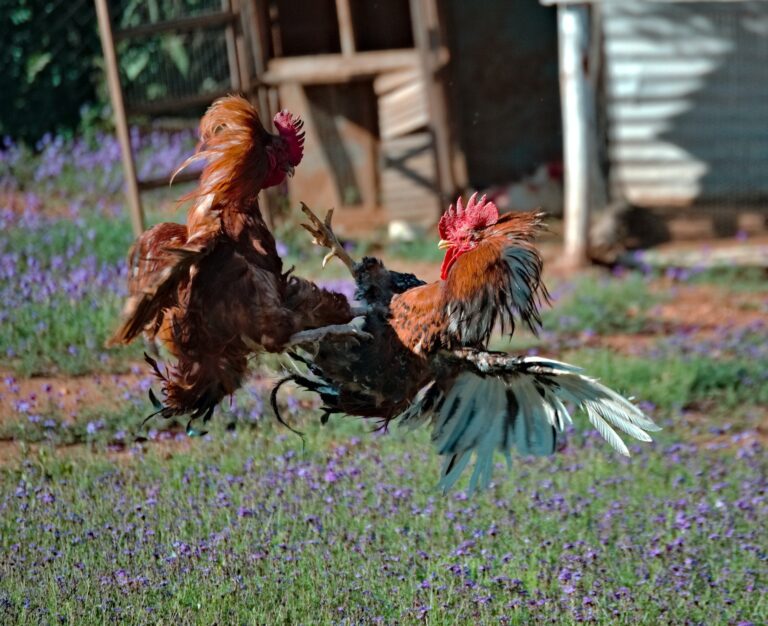What is the legal status of cockfighting in Bangladesh?
Cockfighting is considered illegal in Bangladesh, as it is a cruel and inhumane activity that involves the deliberate pitting of two cocks against each other to fight until one of them is either severely injured or killed. Despite its illegality, cockfighting remains a popular underground activity in the country, particularly in rural areas where the sport is deeply rooted in the culture.
Can you provide a brief overview of cockfighting in Bangladesh?
Cockfighting in Bangladesh dates back centuries and is believed to have been introduced by Mughal emperors. It has since been practiced as a traditional sport, with various regional variations. Typically, two roosters are bred and trained specifically for fighting, and are equipped with sharp metal spurs or knives called gaffs to inflict more damage on their opponents. The birds are then placed in a ring, where they are encouraged to fight until one of them is defeated or killed. Betting on the outcome of the fight is a common practice, with significant sums of money often changing hands.
How is cockfighting referred to locally in Bangladesh?
In Bangladesh, cockfighting is known as Murgh Larai or Murgh Jangi, which translates to rooster fighting or rooster war. The sport is particularly popular in rural areas, where it is considered a traditional pastime and is often held during festivals or special occasions. Despite its illegal status, cockfighting remains a lucrative business, with participants and spectators often willing to pay high prices for prized fighting cocks.
What are the laws and penalties surrounding cockfighting in Bangladesh?
Under Bangladeshi law, cockfighting is considered a form of animal cruelty and is therefore illegal. The Bangladesh Animal Welfare Act, 2019, which aims to protect animals from unnecessary suffering, specifically prohibits the organization, participation, or promotion of animal fights, including cockfighting. Those found guilty of engaging in such activities can face fines, imprisonment, or both.
- Fines: Penalties for participating in cockfighting can range from 5,000 to 50,000 Bangladeshi Taka (approximately $60 to $600).
- Imprisonment: Individuals found guilty of engaging in cockfighting may also face imprisonment for up to six months.
What government resources and laws are involved in cockfighting regulation in Bangladesh?
The regulation of cockfighting in Bangladesh falls under the purview of various government agencies and laws, including:
- Bangladesh Animal Welfare Act, 2019: This comprehensive legislation aims to protect animals from unnecessary suffering and cruelty, and specifically prohibits the organization, participation, or promotion of animal fights, including cockfighting.
- Department of Livestock Services (DLS): The DLS is responsible for the implementation and enforcement of animal welfare laws in Bangladesh, including the regulation of cockfighting. This government agency works to raise awareness about the negative impacts of the sport and to crack down on illegal cockfighting activities.
- Local Police: Local law enforcement agencies also play a role in the regulation of cockfighting, often working in conjunction with the DLS to carry out raids and arrests of individuals involved in the illegal activity.
Despite these regulations and enforcement efforts, cockfighting remains a persistent issue in Bangladesh, with many individuals continuing to participate in the sport for cultural, social, or economic reasons. Increased awareness and stricter enforcement of the existing laws are needed to effectively combat the practice and protect the welfare of animals in the country.
